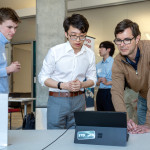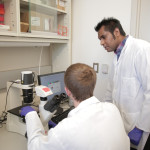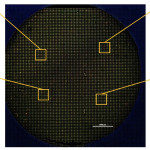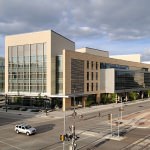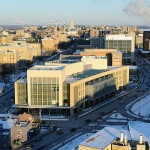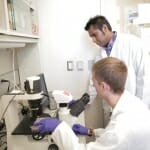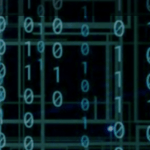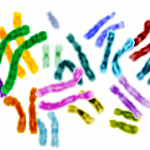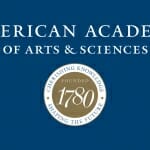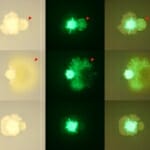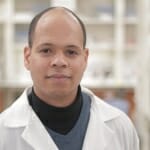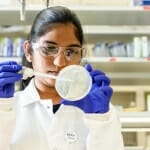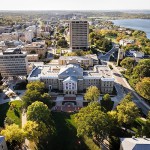Tag Wisconsin Institute for Discovery
UW Tech Exploration Lab student projects highlight innovation, emerging technologies
Bold ideas, creative problem solving and community impact were at the heart of 24 student projects launched this past semester at the Tech Exploration Lab.
Serendipity reveals new method to fight cancer with T cells
Cells treated with “metabolic priming” retained their stem cell-like qualities, thus enhancing their ability to kill cancer cells, transform into durable memory cells, and survive longer in the body.
Stem cell technology developed at UW–Madison leads to new understanding of autism risks
Ashton says researchers using technologies like the RosetteArray are finding that the risk factors for autism spectrum disorder are boiling down to a couple of core pathways, that seem to have roles very early in human brain development, which is helpful information as researchers work on treatments.
Improved understanding of early spinal cord development paves the way for new treatments
Researchers at the University of Wisconsin–Madison are developing the means to turn stem cells into a wide range of specific types of spinal cord neurons and cells in the hindbrain — the critical nexus between the spinal cord and the brain — paving the way for improved prevention and treatment of spinal cord disease.
New interactive mural invites exploration and engagement with science
A multilayered mural painted in bold colors now hangs in the atrium of the Discovery Building, depicting the many facets of STEM research and inspiring new generations to engage in science. Painted QR codes make the mural interactive, drawing the viewer into the stories of renowned and lesser known Wisconsin scientists whose contributions have shaped society.
NSF award will support fundamental data science research
Data scientists are harnessing big data and laying the foundations for major advances in data-rich applications thanks to a five-year, $4.6 million grant from the National Science Foundation.
Researchers at UW–Madison lead data science coalition to aid with COVID-19
Early modeling results show that the speed of viral transmission has slowed since Wisconsin's first “Safer at Home” executive order, demonstrating that social distancing is necessary to stop the spread of the disease.
New tool predicts three-dimensional organization of human chromosomes
The predictive tool is a boon for researchers studying how cells control the activity of genes, helping explain how cells achieve their key functions and how they go haywire, as happens in diseases such as cancer.
Two UW–Madison scholars elected to American Academy of Arts and Sciences
American politics expert Katherine Cramer and director of the Wisconsin Institute for Discovery Jo Handelsman are being recognized by the academy for their contributions to science and public affairs.
Randolph Ashton named SCRMC associate director
Ashton, a leading UW–Madison stem cell scientist whose lab develops novel tissue engineering methods to derive brain and spinal cord tissues from human pluripotent stem cells, will assume a leadership position with the Stem Cell and Regenerative Medicine Center.
Stem Cells @ 20: Students find inspiration, support in UW–Madison’s stem cell community
When Kaivalya Molugu was considering graduate schools, she knew she was interested in stem cell research, but she had to decide where to apply. The answer soon became clear: the place where it all began.

